Easter miracle for a revived Scott Morrison
All pre-campaign bets are now off as Labor’s weaknesses have been exposed.
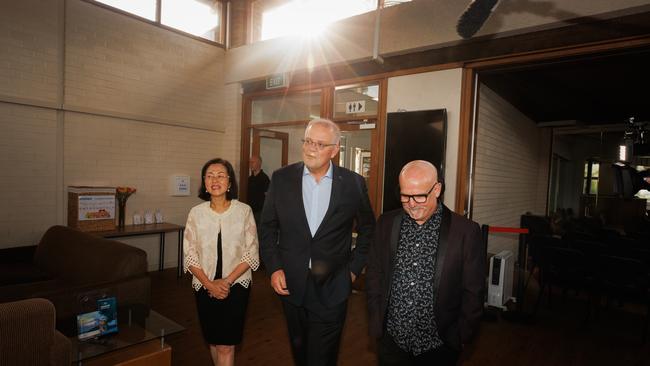
The lesson is that campaigns proper are different. This is where Bill Shorten misjudged in 2019. It is where Albanese has misjudged at the start of the 2022 campaign. The almost irresistible conclusion is that Albanese has failed in a personal and political sense to prepare himself properly for leadership combat on policy issues and the inevitable media probing.
Labor has time to recover, and the first week cannot define a six-week campaign. Yet the potential flaw in Labor’s campaign is now more ominous: for too long it has invested too much in victory through public rejection of Scott Morrison’s persona. Suddenly, Labor looks more fragile around the questions What does change mean? and Is Albanese up to the job?
Albanese’s problem is that his blunders played into the central claim Morrison made against Labor in his opening statement – that this election is a choice between a strong economy and a Labor opposition that would “weaken it and risk it”, between “a government you know” and an opposition that still can’t tell you “who they are” and “what they stand for”.
The risk in Labor’s strategy is now more obvious: the combination of a modest, non-threatening, hardly persuasive policy agenda with a leader still an unknown commodity to many voters despite serving 26 years in parliament. The push factor against Morrison is strong but the pull factor for Albanese is weak.
The first week was about two issues: the economy and Albanese’s vulnerability on the economy, a double plus for the government. Senior ministers were stunned at the opening spectacle. Morrison, never short of self-belief, radiated confidence. But elections don’t necessarily end the way they begin.
Albanese’s defenders suggested he was merely subject to a “pop quiz” and that his inability to nominate the unemployment rate of 4 per cent had no significance. Forget those apologies. The issue was neither memory nor numbers. It was policy substance, the mindset of the alternative PM, and the absence of his focus on the most critical issues facing the country.
Indeed, there was a pattern to Albanese’s performance this week – his ineptitude and uncertainty over policy – the two standout examples being economic management and border protection.
The idea that Kevin Rudd, Bob Hawke or Paul Keating would have been exposed in this manner is inconceivable. And that’s the exact point. Albanese’s effort to recover was sad: presenting himself as an economic adviser to the Hawke government, technically correct but fatuous in any meaningful sense given he had no influence whatsoever except as an opponent of much of the Hawke-Keating reform agenda.
The further tempting assessment from the week is that Albanese has been so obsessed about his campaign against Morrison’s character than he failed to appreciate the flaws that might open around his own character, notably whether he is equipped to discharge the job of prime minister.
Perhaps it is salutary this question is put on the table at the outset. Certainty, it needs to be addressed and answered by Albanese during the campaign. A successful answer will see Labor retain its polling lead and Albanese affirmed as PM. But if there is a second miracle recovery by Morrison, against the odds, it will date from this week.
The core issue concerns the office of prime minister in the Australian system. The office is an amalgam of chairman and chief executive. The PM must actually know how to run the economy, how to manage national security, how to preserve our sovereignty and how to guarantee core service delivery. Having capable ministers is not enough – a prime minister lacking policy substance and conviction stature is doomed.
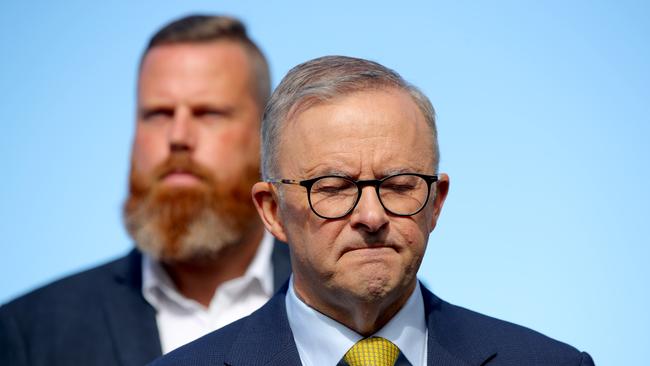
Given the grave damage to his own persona, Morrison knows his only path to survival is to run a policy contest that exposes Albanese as being out of his depth and too risky as PM. Put bluntly, there is no other path to victory for Morrison. The tactic will be to grind down Albanese and force more mistakes.
Labor’s support is wide but not deep. It has not paid sufficient attention to the issue of policy grip around its own leader. Losing weight and getting new glasses is fine but not if you’re clueless about Australia’s unemployment level and the parameters of monetary policy in the race to create jobs and lift wages.
There was an insulting dimension to Albanese’s failure at his Monday media conference when he had no idea about either the unemployment rate or the 0.1 per cent Reserve Bank cash rate. These markers go to the economic health of the Australian people – Labor’s core concern.
The unemployment rate is mentioned daily – it was nominated by Morrison when he called the election. It was highlighted by Josh Frydenberg in his budget speech, pointing out that unemployment was the equal lowest for 48 years. The entire parliamentary term has been dominated by the global recession from the pandemic when unemployment threatened to reach as high as 15 per cent and welfare queues in 2020 became a brief reminder of the Great Depression.
How could a Labor leader’s mind be so decoupled from the unemployment rate? What else has been occupying his attention apart from jobs and more jobs? Labor’s justified attack on the government has focused on weak wages growth, but wages growth – as the Reserve Bank has been saying for ages – is a function of the unemployment rate and tightening in the labour market.
If you’re not focused on the unemployment rate then you’re not focused on the prospect for wage rises and increases in living standards. The pivotal economic debate in recent times is about the non-accelerating inflation rate of unemployment (known as the NAIRU) – the unemployment level at which a tight labour market drives higher wages, now assumed by Treasury to be 4.25 per cent.
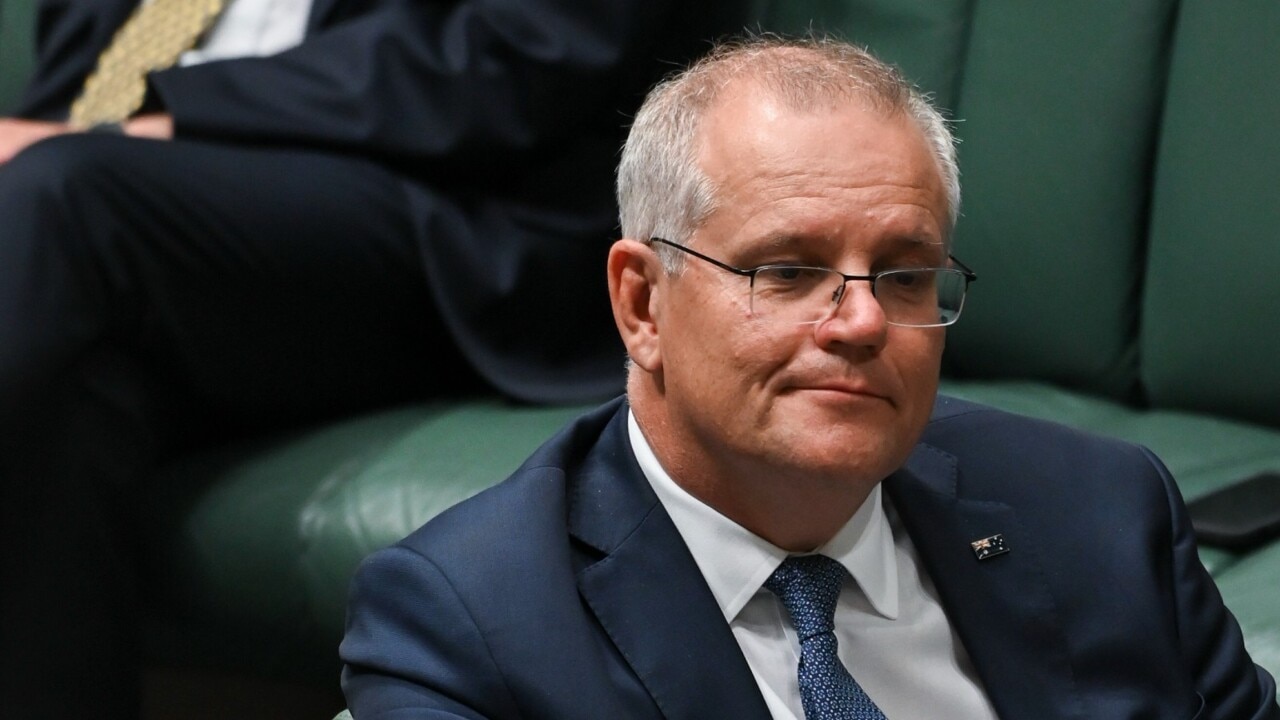
These are foundational aspects of the economic debate that should be familiar to any PM or Opposition Leader. Don’t think the cash rate is too obscure. This is tied to the debate about interest rates, about the home mortgage, and about the interest payments households must meet.
Albanese pledges to govern in the Hawke mould. That’s good. Obviously, he’s sincere. The issue, however, goes to his core policy beliefs given the magnitude of his ideological transition, unmatched by any other candidate in recent history running for high office.
During the 1980s, Albanese was a fierce ideological opponent of the Hawke-Keating government and its senior figures, at one point, saying: “The real dangers in the party are people like (Peter) Walsh, (John) Dawkins and company who appear to have an absolute contempt for working class people. Someone like (Paul) Keating can put himself up as a possible Labor PM but he is more comfortable mixing with millionaires and business executives than he is with working-class people.”
“I am who I am,” Albanese said in response to criticism. “I will be getting about being me … I have a plan for the future.” That’s good but the task for Albanese is to provide a convincing exposition of what “being me” involves.
It is extraordinary that three days after his economic blunders Albanese made another blunder when asked how he would respond to efforts by people smugglers to test a Labor government, a likely event.
“We will turn boats back,” Albanese said. “Turning boats back means that you don’t need offshore detention.” There was no qualification. It was unambiguous. Albanese knew what he was saying. He had just announced a major change in ALP policy, contrary to the Rudd government stance of 2013, in conflict with the ALP platform and undermining border protection policy.
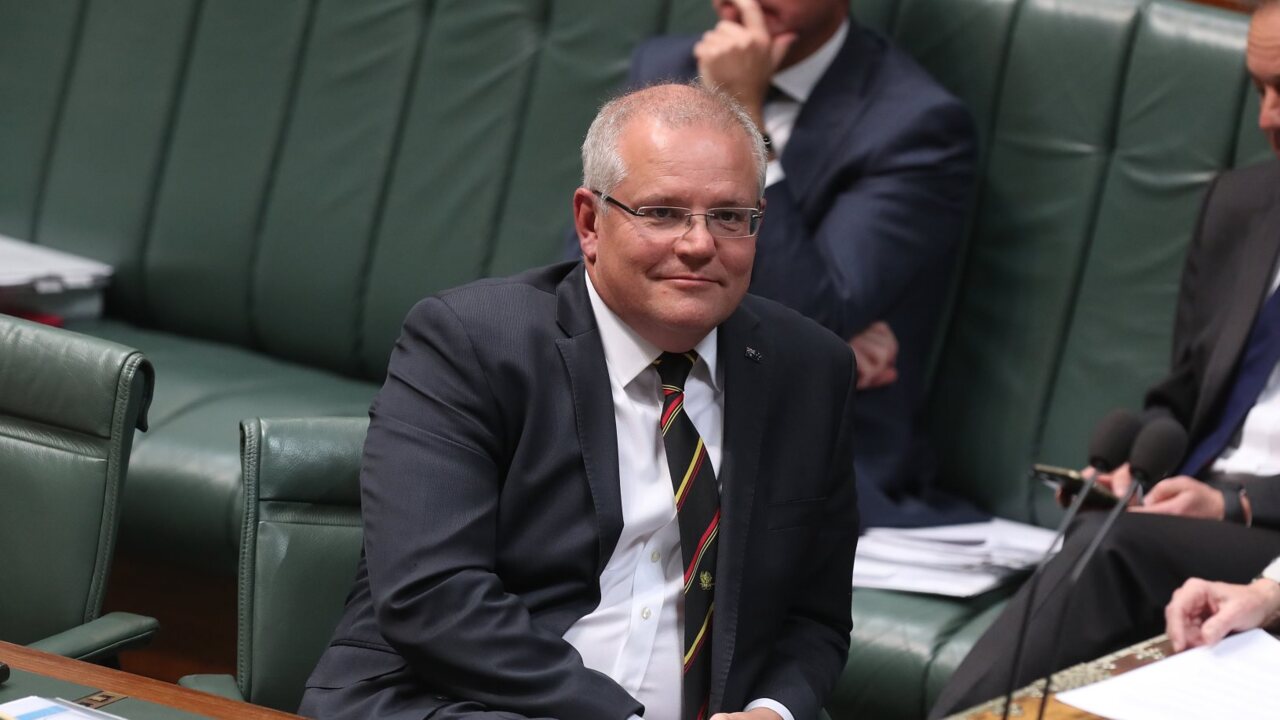
Informed during an interview on 2GB of what Albanese had said, a surprised Defence Minister, Peter Dutton responded: “That would be a remarkable departure from the Labor Party policy … maybe he’s made a mistake in a press conference again.”
Albanese was forced to hold a subsequent media event solely to correct what he had said. He confirmed with a one word answer that offshore detention would be kept. Obviously, he detests the notion. He now said it was Labor’s “preference” that it would not be necessary.
Albanese’s initial rejection of the policy is understandable. It is cruel, a humanitarian offence and a source of human misery but Australia will not tolerate boat arrivals self-selecting this country.
Albanese’s personal opposition to tough border protection has been long-standing. At the 2015 ALP National Conference, Albanese rejected boat turnbacks, saying “I couldn’t see myself” doing this. The question again goes to his conviction – his willingness as a PM to do what is necessary to halt any resurgence of boats, and this week’s remarks merely reopened that issue.
The lesson of the first week is that Albanese needs to fight on the economy – that means more Labor policy and better exposition.
The reality is the Morrison government offers no ambitious economic reform agenda, envisages high levels of government spending and is absent any serious plan to reviving flagging productivity levels. Its economic policy is built on recovery momentum from the pandemic.
The omens for Labor are mixed. It showed fiscal courage in announcing it won’t increase the JobSeeker allowance in its first budget, giving priority to budget realities. But big trouble looms with Albanese’s constant pledge to deliver more “secure” work – given the figures show casuals and independent contractors are not increasing and he needs to spell out his plans for the IR system in the cause of the secure work demanded by the unions.





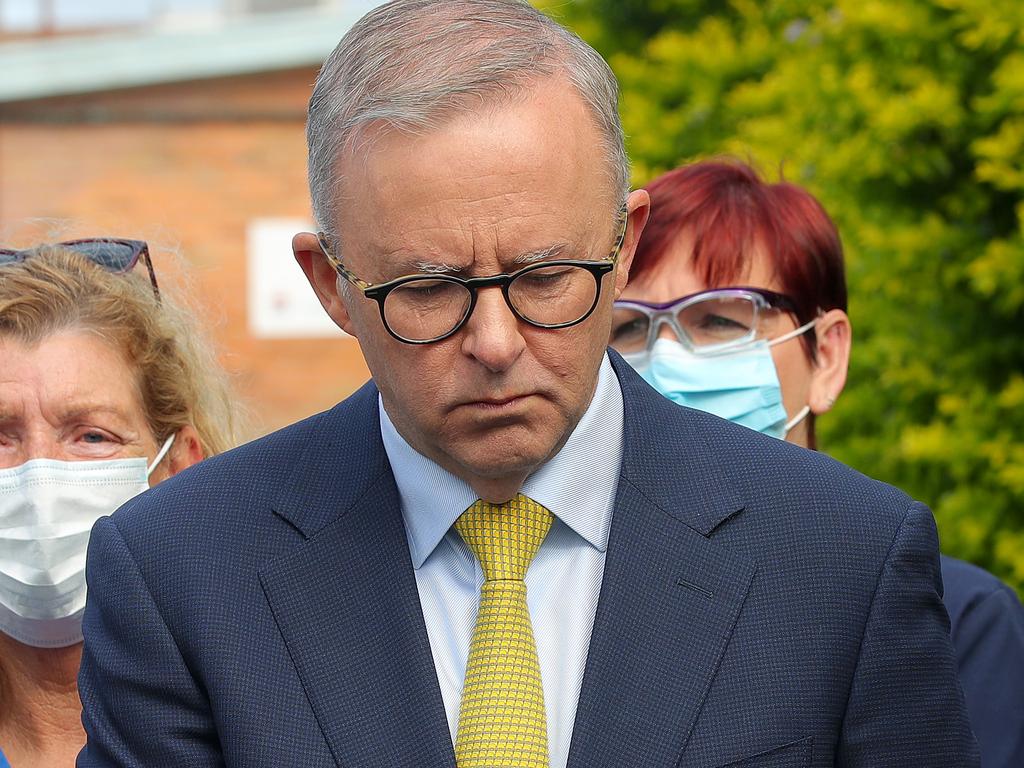
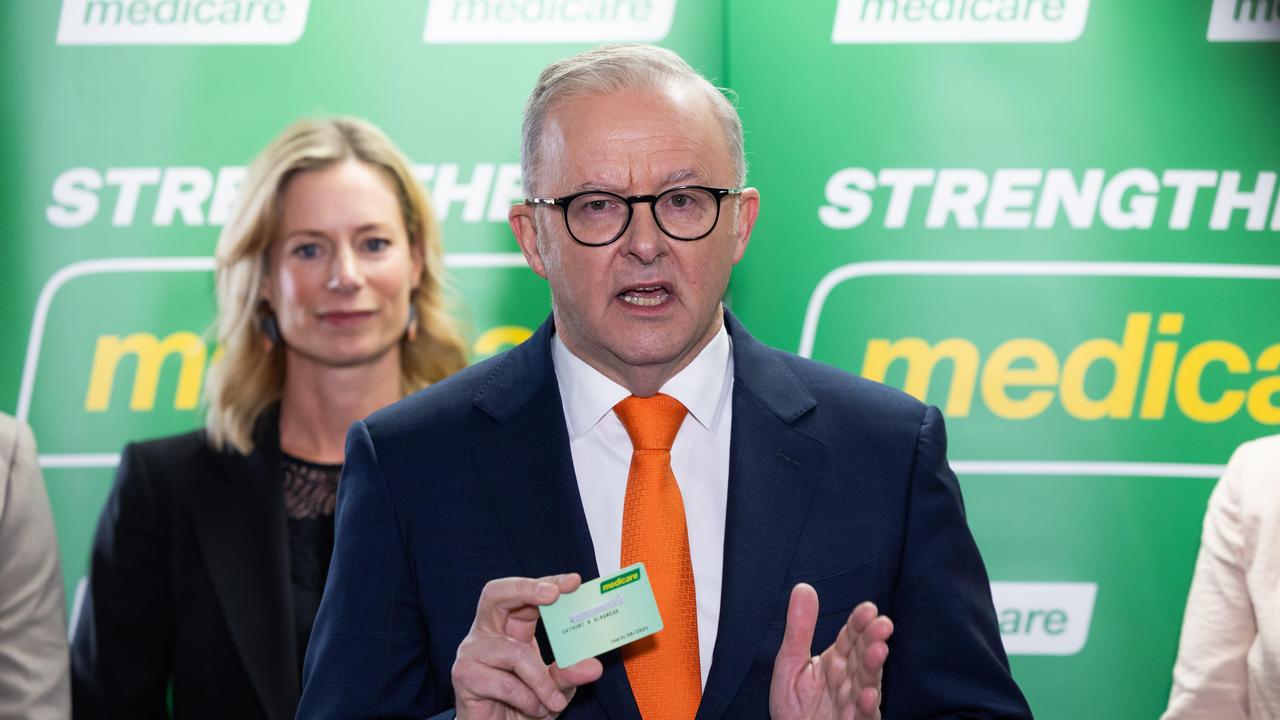

The election opening has been an unpredictable shock – multiple blunders over policy by the front-runner, Labor leader Anthony Albanese, that have resurrected government hopes and raised the crucial question: will Albanese learn and correct, or do his stumbles signal an election reversal?